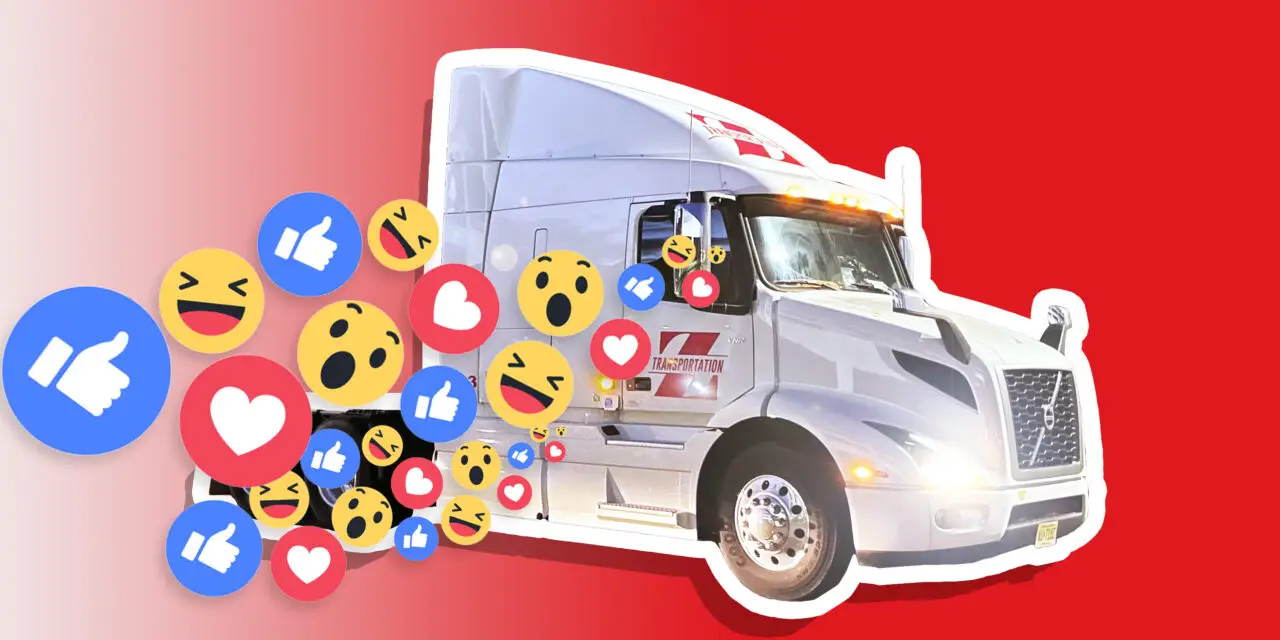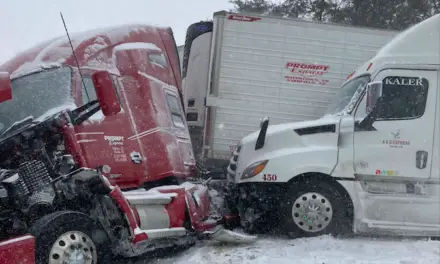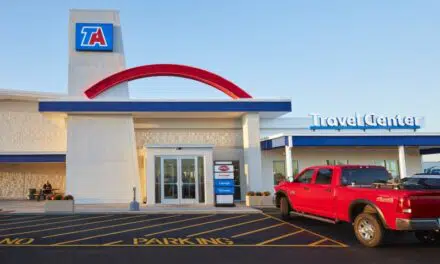
A few things must be in order until Clarissa Rankin heads out on a job. First and foremost, a morning meditation. (“Dealing with transportation needs you to be cool in order to be a better driver,” she says.) She then goes to the yard to hook up Sparkle, her 2019 Freightliner Cascadia. Sparkle is a big girl: the truck will weigh up to 80,000 pounds when fully loaded.]
Rankin has set up her “mommy getaway apartment” in the back of the spacious cab, complete with a queen bed, a stash of snacks, some furniture, cleaning supplies, and wig stands. On long hauls, she loves to change up her style — long and wavy one day, bright green or deep, curly red the next.

Clarissa Rankin also gives motivational speeches based on her experiences as a truck driver.
Once she wrangles Sparkle, she picks up her trailer and sorts out her first load. Rankin, 34, runs her own trucking company in Charlotte and normally operates within a 250-mile radius to Virginia, Tennessee, and South Carolina. Wherever she goes, she takes her almost 1 million TikTok followers with her, sharing the ups and downs of the work, delivering motivational pep talks, and answering fan questions.
“How in the world did you get into trucking?” she is always asked. But there’s another question she’d rather have answered:
“How can I get started, too?”
It’s a promising opportunity if you’re willing to put in the effort.
An increasing number of women are joining the trucking industry at a time when demand for drivers is at an all-time high. Many of them, like Rankin, are using their power to educate other women and lay the foundations for progress in an important and often misunderstood industry.
They’re also spreading a vital message: trucking is for everybody.
According to a Women in Trucking study, women made up more than 10% of over-the-road truck drivers in 2019. This is a significant improvement from the announced 7.8 percent in 2018. When various types of drivers are included, as well as other non-executive transportation industry roles such as technicians, driver supervisors, and dispatchers, the proportion of women increases to 43.4 percent.

Rankin enjoys showing people that it is possible to be feminine and successful in a male-dominated industry.
This increase has been due to the efforts of inclusive industry organizations such as Women in Trucking, which promotes women in the industry and recently collaborated with the Girl Scouts of America to launch a transportation badge.
It’s also a product of women becoming more interested in what the profession has to offer.
After her first son was born with a heart defect, Rankin went into trucking. She was studying criminal justice, but she realized she couldn’t afford it.
“My bills were piling up, and I needed more money,” she explains. “It was a huge gut decision to get into trucking.”
Trucking is a difficult business that requires extensive preparation, education, and hands-on experience to succeed. According to Rankin, it is not uncommon for a driver to earn about $60,000 in their first year. She made six figures in her second year on the job.
She now works independently under a mega-carrier, and she can come home every evening and kiss her husband and two sons goodnight. For a break, she’ll sometimes take a long-distance job to the northeast or down to Miami Beach.

Women’s success stories demonstrate that they, too, should be included.
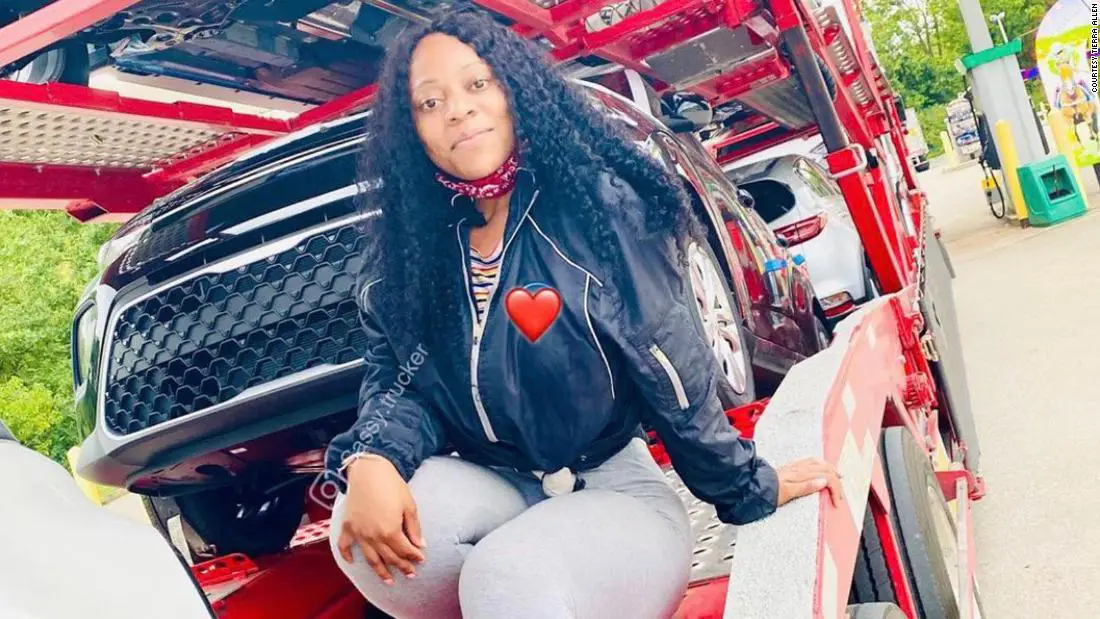
Tierra Allen talks about her experiences on the road and inspires other women to consider a career in trucking.
There are numerous advantages to being a truck driver, including freedom, protection, and income. There’s also the chance of incredible success for those who are social media savvy. On TikTok and other sites, truckers like Asmin de Loa, Shanya Urquidi, and the women profiled here have five- to six-figure followings.
Despite the fact that these influencers follow a tried-and-true social media formula of conventionally attractive feminine women doing non-conventionally attractive, non-feminine stuff, their work and activism have a significant effect.
Tierra Allen has wanted to work in the trucking industry since she was a teenager, and at the age of 18, she enrolled in truck driving training. Allen, now 26, flies all over the lower 48 states, covering 700 to 800 miles a day in 11 hours. On social media, she’s recognized as the Sassy Trucker, and she, like the rest of this budding transportation sisterhood, enjoys poking holes in dusty trucking stereotypes.
Allen’s TikTok is full of videos of her working on her truck or giving advice on how to dress and eat well when traveling. On long flights, she says it’s important for her mental health to remain nourished and maintain her beauty. She’s telling other women that you don’t have to look or behave a certain way to be a successful truck driver by revealing that part of herself.
“I want to prove that in a male-dominated sector, you can still be feminine, and a lot of people like to see that,” she says.

In social media messages, Allen has found support from other female truck drivers.
There are disadvantages to this as well. Both Rankin and Allen claim to receive unwelcome remarks from men on the job. People sometimes doubt their own ability to drive. According to Rankin, a man even told her that because of the way she dressed, he wouldn’t hire her as a driver.
“I would say working in the trucking industry needs a thick skin because we go through a lot,” Young says. “However, I want to inspire others, and I want to see more women get behind the wheel.”
While it’s tough, trucking influencers often use these trying times to talk about bigger issues: self-empowerment, trust, endurance, and the ability to step into positions that aren’t always welcoming to women.
More women in the trucking industry means more solutions to problems.
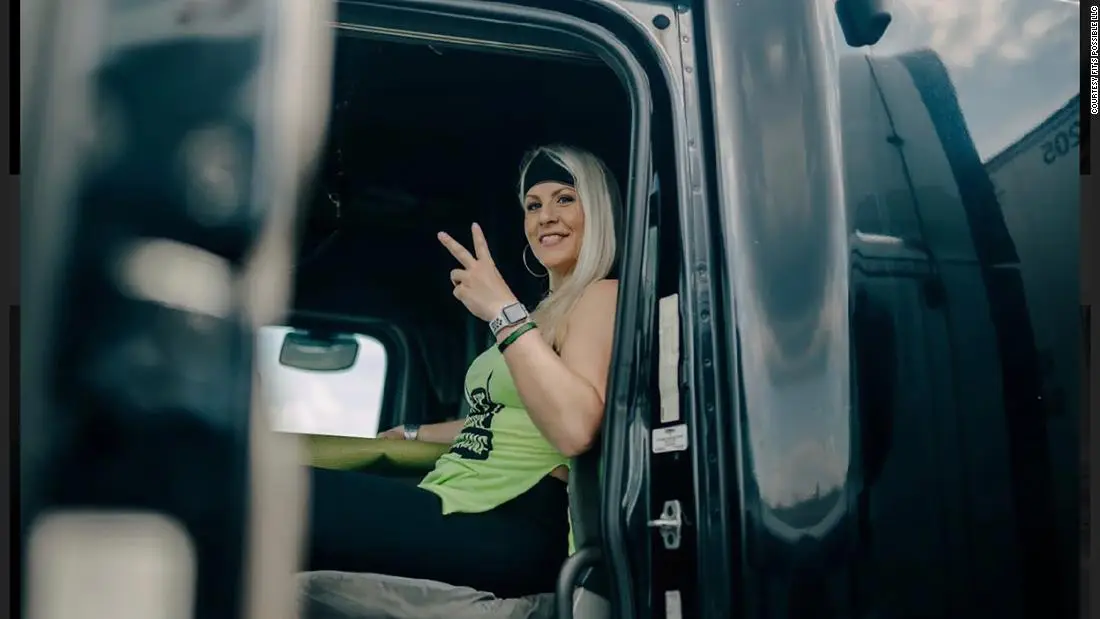
Candace Rivers is the owner of a fitness company that assists truckers in staying fit and avoiding common health problems.
The trucking industry is currently in a difficult situation. Before the pandemic, carriers were still dealing with a driver crisis, and all that has occurred since has only exacerbated the situation. According to the American Trucking Associations, the United States will need around 60,000 drivers in 2019.
It’s just one of the reasons why trucking companies and industry associations are working to get in more women and other underrepresented groups.
Candace Rivers got her start in the trucking industry on Interstate 20 near her hometown of Oxford, Alabama. Rivers, 37, is a fitness instructor and studio owner who felt compelled to help truckers after receiving a spiritual message.
She began investigating trucker health problems and was astounded by what she discovered.
According to studies from the National Institute for Occupational Safety and Health, long-haul truck drivers are twice as likely to smoke or be obese as other US employees. They have a higher rate of potentially life-shortening conditions such as diabetes and high blood pressure, and they are more prone to exhaustion and chronic injury. Rivers explains that sitting for long periods of time puts them at risk of blood clots, which can lead to strokes or aneurysms.
Any of these dangers could easily force drivers off the lane, which is bad for the driver and bad for the industry.
She says, “It broke my heart.” “Many drivers risk their lives and their bodies to provide for their families and to get people what they require.”
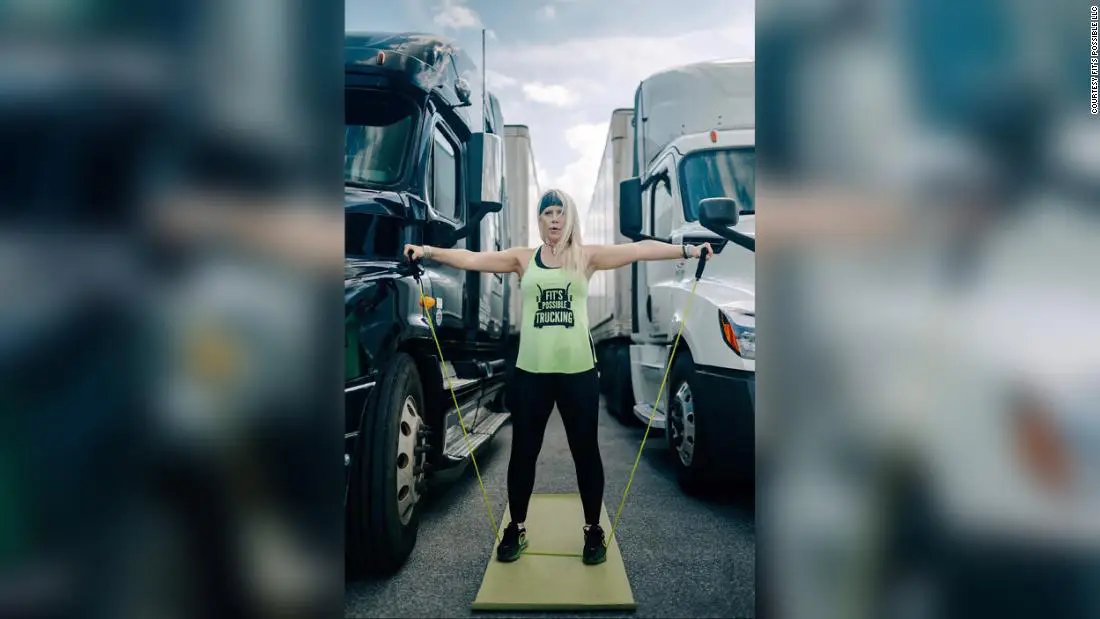
Rivers is studying for her commercial driver’s license in the hopes of one day owning her own rig.
Rivers now owns and operates Fit’s Possible Trucking, a fitness company that assists truckers in staying active and eating healthy while on the road. Several companies have expressed interest in incorporating her programs into their health initiatives, and she intends to purchase her own truck and hold wellness events across the country.
Rivers is currently pursuing her commercial driver’s license in order to do so. She claims that one reason women may not consider trucking as a career option is that they are unaware of the number of opportunities available.
“There are so many high-paying local jobs for CDL holders, and women can drive just as well as men,” she says. “This industry is designed for more than just the people who think it is.”
With her large social media followings, she’s sharing her CDL journey as well as wellness and fitness advice. She, like other trucking influencers, understands that sometimes all people need is a little motivation, “someone speaking life into you,” as she puts it, to try something new, something a little scary — something that could change their lives for the better.
The key is to demonstrate that anyone can do it, regardless of whether they’re wearing old baseball caps or mink eyelashes. And, if the road is made available to them, a new generation of truckers could arrive, bringing with them new ideas and solutions.

